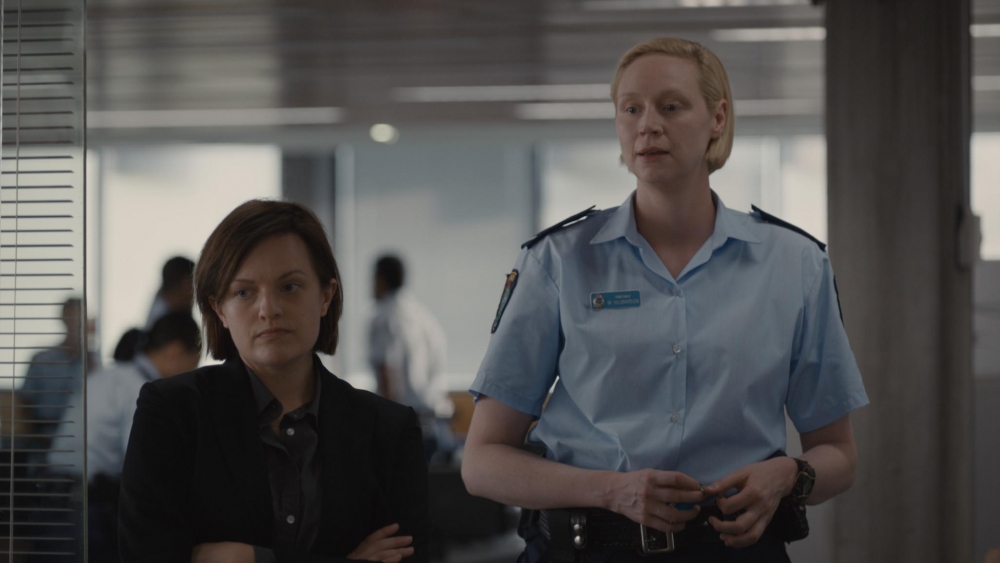
- Festivals
In Cannes, Sadness, Celebration and “Top of the Lake”
It was a somber start for day seven in Cannes as the Festival, like the rest of the world, awoke to the tragic news coming from Manchester. An official statement from the Festival read: “This is yet another attack on culture, youth and joyfulness, on our freedom, generosity and tolerance, all things that the Festival and those who make it possible –the artists, professionals and spectators– hold dear.” At 3PM local, the Festival came to a halt observing a minute o silence in honor of the victims. Shortly thereafter the temporary capital of world cinema was hit with more bad news as the announcement came from Switzerland of the passing of Roger Moore.
With the sadness however came the resolve to persevere, with the 70th anniversary reunion and anniversary photo-call on the Montée des Marches for one and, of course, with the screenings. These included one historic moment when at 1:20 in the afternoon, from the stage of the Salle Bazin, Jane Campion thanked the audience and the lights went down on a special screening of all six hours of Top of the Lake 2: China Girl. It was the first time in Cannes history that a television series was screened here and it is one of two this anniversary year, with the upcoming showing of the first two episodes of Twin Peaks. Both happen to be directed by previous Palme d’Or winners and are presented as “special events”, but they nevertheless represent a milestone of sorts for this staunch bastion of cinematic purity.
In 2014 Top of the Lake was nominated for Best TV Series Drama and the star, Elisabeth Moss, won the acting Golden Globe for the category. Moss is back as detective inspector Robin Griffin in the long-awaited sequel from the Kiwi director. As part of our strict no-spoiler policy we will be maddeningly vague with plot details. Suffice it to say that the fierce and vulnerable police woman (who has come back on the Sydney force) is taking on another case, this time involving the death of a Southeast Asian sex worker in the Australian City. When HFPA journalists visited the set of the series in Sydney last June Campion explained: “We have a situation in Australia where students come from Asia and can work on student visas and this is how a lot of the brothels here, which are legal, find girls. I think the reception of the (first) story was much better than we expected and I really enjoyed the long form. It’s like a novel for me and I love novels and I came up for an idea set in Sydney. Like a really completely separate story, but with the same detective 4 years on.”
As she pursues her investigation, Robin is still wrestling her personal demons, stemming from the rape she was a victim of as a teenager and the daughter she gave up for adoption – a character which will feature prominently in the story, along with the woman who adopted her, Julia, played by Nicole Kidman. “Obviously I’m a mother with adopted children,” Kidman told us in Australia, “and I’m a mother with birth children so this is just an interesting exploration of being the adoptive mother which I can bring a lot of emotion and ideas. For the actress who was just seen in HBO’s Big Little Lies it is also one of her four Cannes roles, sandwiched between Yorgos Lanthimos’ The Killing of a Sacred Deer, Sofia Coppola’s Beguiled and How to Talk to Girls at Parties by John Cameron Mitchell, but she ascribes a special quality to a Jane Campion set: “It’s unique and (…) there’s also just an ease at finding truth and characters and she’s not judgmental which I think is a beautiful place to start. There’s really no judgment for any of her characters. They’re all her children in a way.”
From what we saw in Cannes, Season Two, which will air on the Sundance Channel, appears as compelling as the first one. An enticing thriller told from Campion’s uniquely female point of view, where original and fully fleshed female protagonists explore relationships, solve crimes and create drama like we have not seen before. “Women are more than 50% of the world and gave birth to the whole world,” says the director. “What we think and what we feel and how we see the world is important. For example Series 2 is very much about babies and children and, you know, a lot of women’s deep issues and when the world is as skewed so that it’s all about war and crime and I don’t know gangsters and stuff like that, it is a problem.”
A problem that a healthily growing number of women filmmakers like Jane Campion are now helping to solve.

